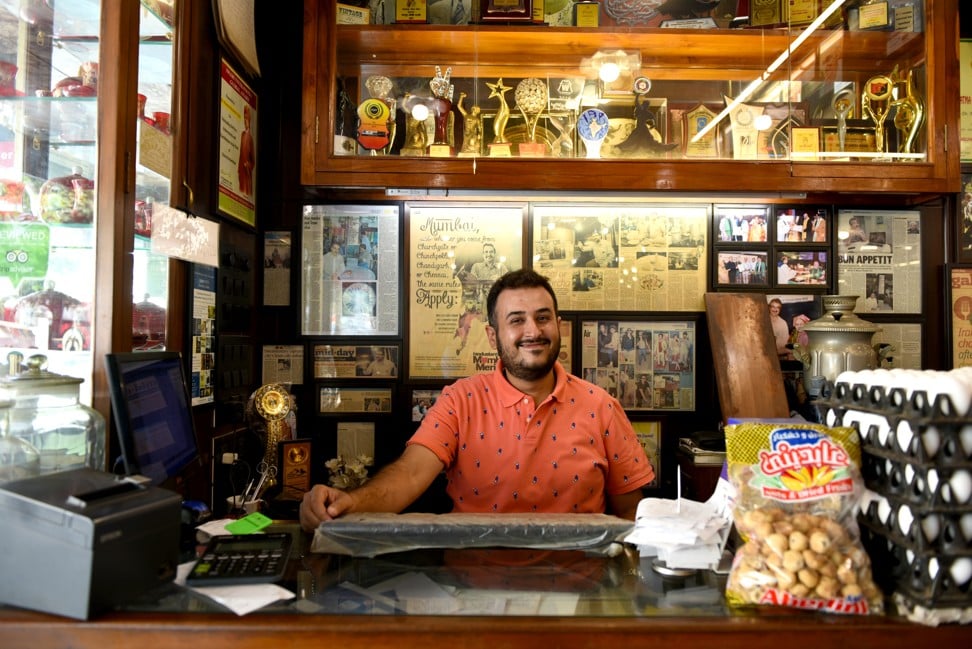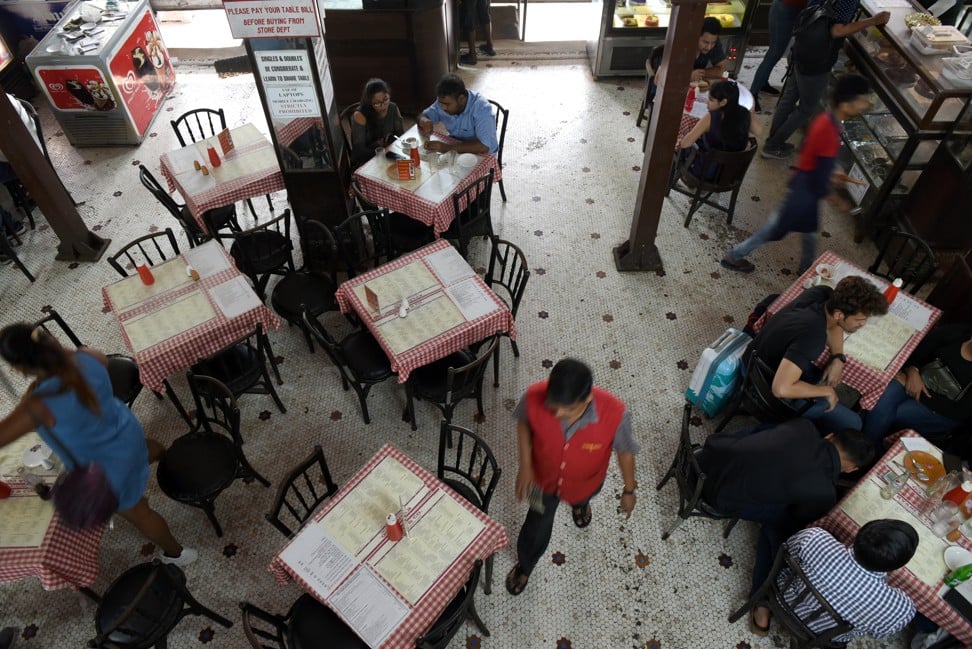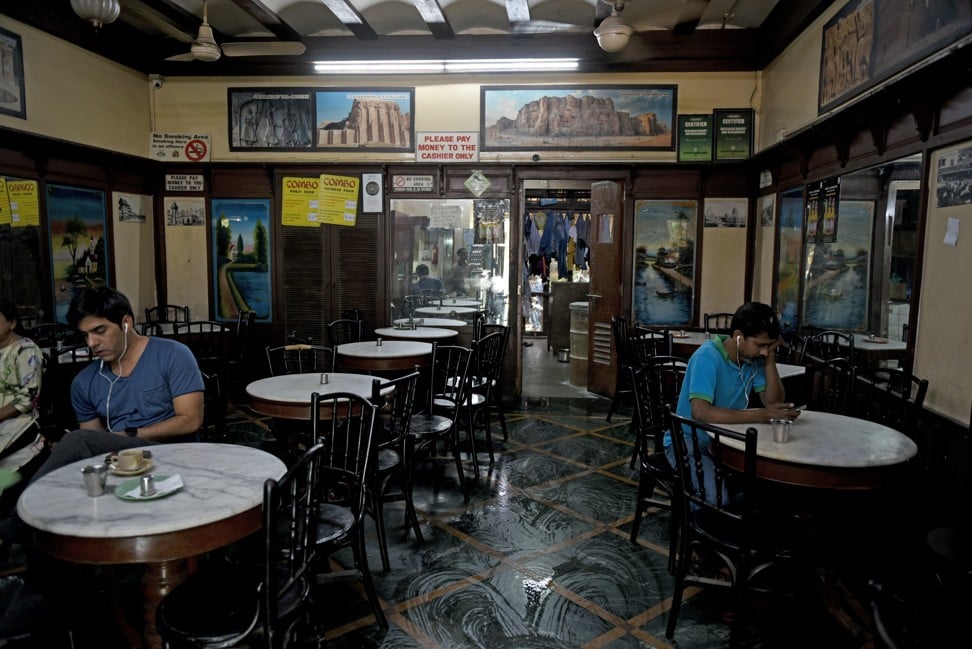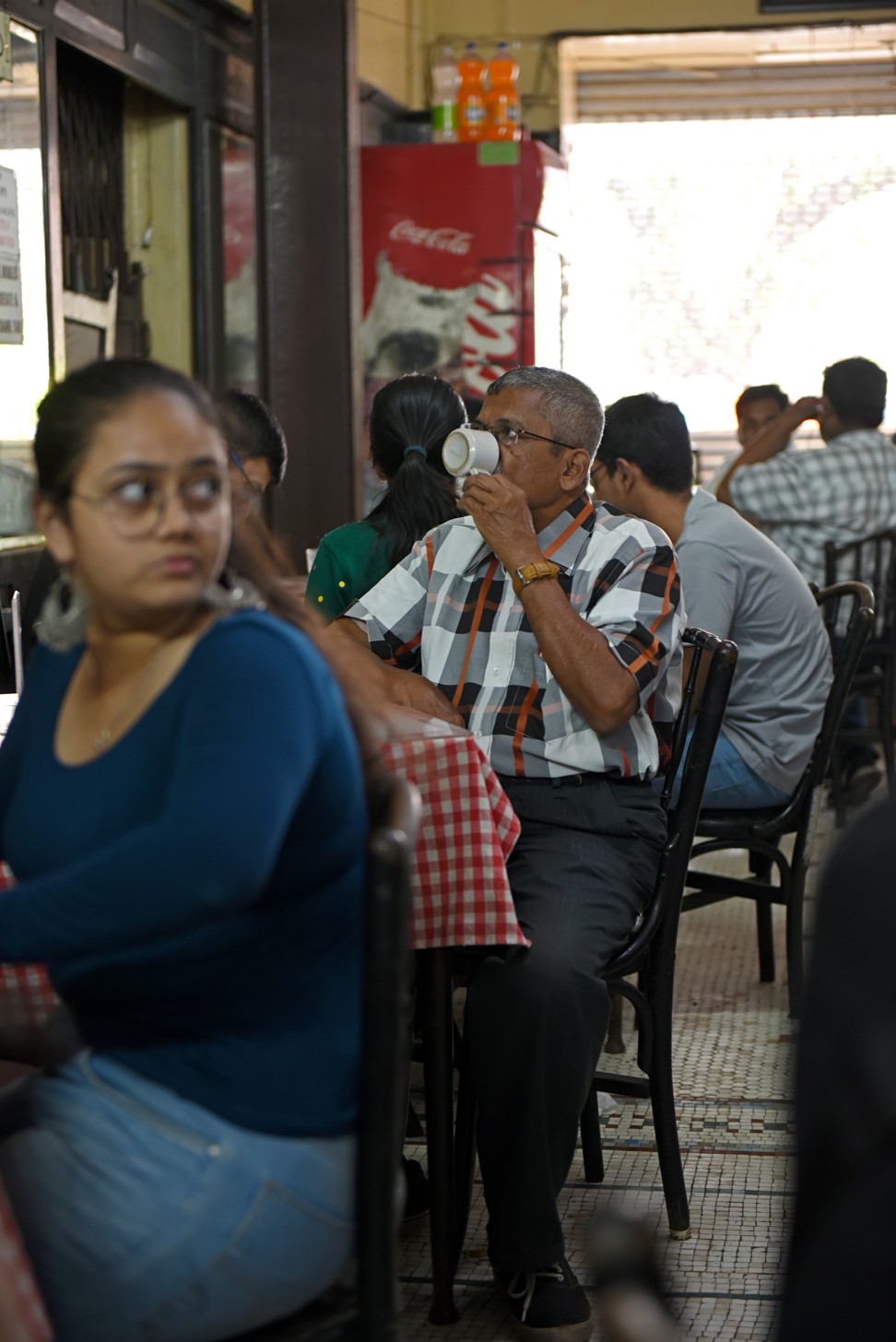
Remnants of the British Raj in Mumbai, Irani cafes preserve Parsi cuisine and culture of rich and poor mixing
- Although only a few dozen original Irani cafes remain in Mumbai, they have left their mark in India’s most cosmopolitan city
- The cafes, the fast food joints of their era, would see customers from every walk of life, religion and culture eat and drink under one roof without friction
The fragrant smell of mutton and berry pulao wafts through Britannia & Company, one of the last remaining “Irani” cafes in Mumbai. Although it is still flourishing in Colaba’s Ballard Estate, a Mumbai business district known for its stately colonial architecture, the Britannia is a relic of a slowly disappearing cafe culture.
Mumbai’s Irani community includes the descendants of Zoroastrian, Parsi and Muslim Iranians who fled to India to escape famine or religious persecution over the centuries. Many immigrant Iranians became chaiwalas (tea sellers) in the late 19th and early 20th centuries. They were soon known for their cafes and the tasty Irani chai, which is made with condensed milk and Assam tea from India’s northeast.
Mumbai’s Irani cafes are slowly dwindling in number, from about 400 at the peak of their popularity in the 1960s to about 30 today. The Britannia is one of those that endures.

Over the decades, Boman Kohinoor, his wife and various family members have preserved their Iranian heritage through food – specifically Parsi cuisine, which fuses classic Iranian dishes with the strong, spicy flavours of India. The dishes symbolise the presence of the Irani community in Mumbai, where many still speak Farsi, or Persian.
Coffee and cars coexist on trendy Taipei cafe street
Little has changed in the Britannia dining room, where the sweet, milky tea drink chai is still a favourite, and customers enjoy the Irani staples of lentil chicken dhansak, mutton curry sali boti, and caramel custard.
Redolent of days gone by, Irani cafes often feature high ceilings, bentwood chairs, long mirrors, checkerboard-tiled floors and marble tables.
Mansoor Showghi Yezdi, the owner of Cafe Irani Chaii in Mumbai and an award-winning filmmaker, says Irani cafes were once the go-to places for residents who wanted something quick and tasty to eat.

“Before McDonald’s, Domino’s and all that, we were the most popular cafes and quick eateries in the city,” he says. “We are linked to an era when people used to hang out in our cafes, when a taxi driver would sit next to a businessman and come up with ideas about the future of Bombay over a cup of Irani chai.”
Yezdi’s grandfather walked all the way from Iran’s central Yazd province to India in 1890 to escape famine. With other members of the family, he established a number of diners in Bombay over the years, including the iconic Plaza Cafeteria and Light of Mahim Cafe.
To honour his family’s hard work and the Irani heritage that he fears could disappear as more of the cafes close their doors, Yezdi opened Cafe Irani Chaii in 2015, the first such establishment in Mumbai in 50 years.

“I am the only one who is reviving the Irani cafe culture in Mumbai,” he says. “Other Iranians also took the initiative to preserve the culture, but I’ve opened the cafe after so many people are shutting down their restaurants. My father had one of the best restaurants in Bombay and seeing this culture dying, I took it upon myself to preserve this heritage.”
Yezdi, who has a doctorate in Indian-Iranian relations, spelt his restaurant’s name Chaii with two Is “to celebrate my two loves: India and Iran”. He is there to open the cafe in Mumbai’s multicultural and picturesque Mahim district every morning and is the last to leave at night, although he usually departs in the middle of the day to carry on working on his films.
One of them, Cafe Irani Chai, about the Irani community in Mumbai, has won a number of local and regional awards, and his latest film is a documentary titled Khaneh Be Doosh: The Iranian Nomads in India.

A passion project, the Chaii cafe has won applause from both locals and foreigners in Mumbai. The menu and the aesthetic resemble the family businesses that Yezdi grew up working in.
Although Chaii only opened a few years ago, the cafe’s atmosphere resembles the ambience in Britannia & Company and Kyani & Co, another Irani cafe that opened in Mumbai in 1904 and is considered the oldest remaining Irani cafe in the city.
“I have not opened this cafe for profit but for the beautiful culture that it represents,” Yezdi says. “We offer discounts on India’s Republic Day, and on the national days of both Iran and India, as we are here to give back to the Indian society for embracing us and for making us prosper. We are indebted to this beautiful country.”

Yezdi is joined by other devotees around the world who are determined to preserve and spread the culture of Irani cafes.
In locations across London, in Edinburgh, Manchester and with an upcoming venue in Birmingham, each cafe is a love letter to old Bombay and its Irani cafes. Although not Irani themselves, the Thakrars have adopted the culture in Dishoom, and they classify Irani cuisine as Indian because Irani cafes began and flourished in Bombay.

In Dishoom: The First Ever Cookbook from the Much-loved Indian Restaurant, published in September 2019, the Thakrars and Dishoom executive chef Naved Nasir take readers on a tour of southern Mumbai, through the cafes and diners that made the city what it is today.
The book includes recipes for the dishes appreciated by Dishoom patrons, favourites such as jackfruit biryani and lamb raan.
“As you learn to cook the Dishoom menu, you’ll also discover the simple joy of early chai and omelette at Kyani & Co, of dawdling in Horniman Circle on a lazy morning, of eating your fill on Mohammed Ali Road, of strolling on the sands at Chowpatty at sunset or taking the air at Nariman Point at night,” the book says, waxing poetic on the joys of Mumbai life.

Meanwhile, in Delhi and other major Indian cities, the SodaBottleOpenerWala chain of restaurants offers Parsi food in a vintage atmosphere. Although few Indians outside Mumbai have sampled the original Irani dishes, many enjoy the subculture and its nostalgic charm.
Although only a few dozen original Irani cafes remain in Mumbai, they have left a long-lasting mark in India’s most cosmopolitan city. The popular cafes made it possible for customers from every walk of life, religion and culture to interact, eat and drink in the same space without friction.
Yazdi hopes to see a revitalisation of the Irani cafe culture. In the meantime, he will continue to preserve it with dishes such as chelo kebabs – the national dish of Iran, steamed saffron rice with skewers of kebab meat – and bun maska, sweet breakfast buns.
“Wherever I go, if people don’t know me and I say that I’m Iranian, the first question will be ‘Where is your cafe?’ or ‘Where is your restaurant?’” he says. “That’s what we Iranians are known for and it’s the greatest compliment we could receive.”
